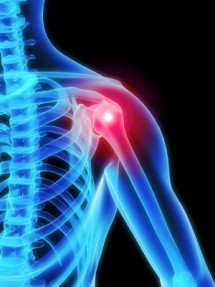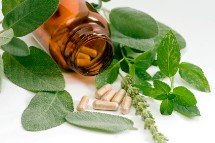How to Reduce Inflammation for Better Health and Longevity
How to reduce inflammation in three easy steps. Foods that reduce inflammation are the starting point, herbs that reduce inflammation as well as other nutritional supplements can help.

Exercise helps as well but only if done properly. All three can prevent arthritis and keep you active as you age.
We are talking about “systemic” inflammation for the most part, rather than localized inflammation that you might have as the result of an injury to a specific part of your body. Systemic inflammation is usually caused by your immune system being activated by an irritant in your system.
Let Thy Food Be Thy Medicine

Hippocrates the father of modern medicine had it right over 2,000 years ago! Food is the single biggest determinant of health that we have control over, and the concept of healing foods is well established.
How to reduce inflammation? To beat inflammation with diet, know your blood type and the foods that are compatible with it. Eating foods that cause antibody/antigen reactions with your blood will increase inflammation and start you down the path of chronic disease like arthritis.
Foods that reduce inflammation are those which don't cause your immune system to react and kick up inflammatory cytokines. The blood type diet books of Dr. Peter D'Adamo, have lists of compatible foods. Use them as a guide and you will feel the difference.
Eating a low glycemic diet is essential too, because sugar raises insulin, and insulin is a “pro-inflammatory” hormone.
Increased insulin=increased inflammation.
It's that simple! Go easy on the sugar and you will live longer and much healthier!
Check out my page on The Anti-Inflammatory Diet for more information!
Herbs That Reduce Inflammation

Herbs can be tricky. They are powerful natural medicines and should be used with caution and a real understanding of what they do and how they might clash with any medications you are on.
That said, there are some herbs that can be helpful in how to reduce inflammation in your body.
- Tumeric (Curcumin) An ingredient in curry powder, tumeric can also be taken in capsule form. The dosage is between 900 and 1800 milligrams per day. Tumeric has powerful anti-inflammatory and anti-fibrotic effects. It also has anti cancer properties and is also a potent anti-oxidant.
- White Willow Bark This extract of tree bark contains salicins, similar to the compound in aspirin. A dosage of 60 - 240 mg of standardized salicin per day is enough. Consult a doctor before using higher dosages.
- Devil's Claw The active ingrediant is called harpagosides. At least 50mg of harpagosies per day should be taken in capsule form for inflammation.
- Arnica Anica montana is taken orally as a homeopathic preparation, or in cream form to be applied to the skin. There is no standard dose, and with the oral form there is no risk of overdose due to its homeopathic form
- Boswellin Boswellin comes from Ayervedic medicine and is very effective for inflammation. 200 to 400 mg 2 or 3 times a day of standardized Boswellin extract should contain 30 to 40% boswellic acids.
- Ginger 2 to 4 grams per day can be taken in capsule form, but use caution and consult a doctor if you have a heart condition or take prescription medication.
- Angelica This is an interesting herb because it actually inhibits pain through the central nervous system. A formulation of Korean Angelica called Decursinol-50 is effective against inflammation. 250Mg once or twice daily is the effective dose.
Please use extreme caution when using herbs that reduce inflammation. Check with a doctor if you have any serious medical condition, and/or you are on ANY prescription medications. When in doubt do not self medicate with herbs until you check with a medical professional that can determine if it is medically safe for you to use the herbs in question.
How to Reduce Inflammation with Exercise
Foods that reduce inflammation do so largely because they lower blood sugar, or at least don't raise it that much.
Exercise can also reduce blood glucose levels which in turn lowers circulating insulin levels. This brings down inflammation.
However improperly done, exercise can even aggravate inflammation. Long duration cardio, especially involving running or jogging on hard surfaces can create inflammation in joints like knees and hips.
Heavy strength training can also cause inflammation in connective tissue if you go too heavy, too often. Common sense should be your guide.
Brief intense exercise is best in terms of avoiding inflammation. This is often called interval training, or lactic acid training.
Brief intense exercise also affects your hormonal system in a positive way, raising levels of anabolic hormones which inhibit inflammation.
Short exercise sessions minimize stress on the joints and maximize hormonal response. This is exactly what is needed!
Check out my page on Antiaging Exercise for More Information
How To Reduce Inflammation Made Simple
Ok, to sum up the main points of your plan on how to reduce inflammation:
- Eat foods that reduce inflammation, by being compatible with your blood type and that minimize insulin release
- Use herbs that reduce inflammation
- Do exercise that is intense and brief to lower blood sugar levels, and optimize your hormonal profile
That's it! Do these three things and you will both lessen your degree of inflammation and increase your longevity. Remember that antiaging is in large part about how to reduce inflammation. Reduce your inflammation and your health will soar!
Return from How to Reduce Inflammation to Aging and Disease
Return from How to Reduce Inflammation to Longevity and Antiaging Secrets
New! Comments
Care to comment? Feel free to leave your comments below!